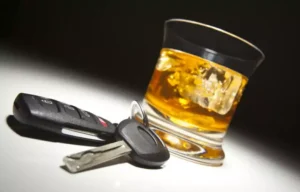Physical Address
304 North Cardinal St.
Dorchester Center, MA 02124
Physical Address
304 North Cardinal St.
Dorchester Center, MA 02124

Alcohol withdrawal itching is an uncommon side effect that occurs two to three days after the last drink. Itching may be related to histamine, a common element found in alcohol that the body also produces naturally. Night sweats and hot flashes are common, but temporary, during alcohol withdrawal. This may contribute to difficulty sleeping but shouldn’t persist too long after the acute withdrawal period. Alcohol detox programs may offer medication, either within a detox facility or as a prescription, for people undergoing alcohol withdrawal. Nutrient deficiencies are common in people with alcohol use disorder and may be treated with a nutrient-rich diet, drinking enough water, and regular use of vitamin supplements.
Poor gut health and microbiota imbalance can ultimately weaken one aspect of how our body protects us from illness. Lauren is an award-winning registered dietitian, author of three books and all-around lover of good food. Additionally, she manages the Instagram page @LaurenLovesNutrition, where people can receive evidence-based alcohol detox side effects nutrition tips and updates.

Anxiety https://ecosoberhouse.com/ and panic attacks may be related to a co-occurring mental health disorder, or may be exacerbated by the lack of alcohol in the body. Many people going through alcohol withdrawal report disturbances in their sleep patterns. Alcohol-related insomnia may last weeks or even months after initial symptoms begin.


Meaningful recovery comes from a strong commitment to an extended period of treatment after detox. Withdrawal seizures, sometimes called “rum fits,” can emerge between 6–48 hours after last use. This level of alcohol withdrawal is marked by seizures in people who have had no previous issues with seizures. Alcohol withdrawal is a set of distressing and dangerous symptoms that stem from the brain lacking alcohol’s influence in the system. Withdrawal is a process that begins within a few hours after last use and creates acute symptoms that can last for 4-5 days. There are several mild to moderate psychological and physical symptoms you might experience when you stop drinking.

Rapid alcohol detox is a method of detox that involves the use of medication and anesthesia to heavily sedate individuals during alcohol detox. These effects can result in a real risk to theindividualexperiencing withdrawal as well as their loved ones who Alcohol Use Disorder could be in harm’s way. A counselor can help someone prepare for life after withdrawal and provide support as they navigate quitting drinking.
When someone drinks alcohol for a prolonged period of time and then stops, the body reacts to its absence. This is alcohol withdrawal, and it causes uncomfortable physical and emotional symptoms. Since this trend caught traction, researchers started exploring the effects of drinking alcohol.
This is considered a medical emergency because it can lead to permanent brain damage. Some natural or home remedies for alcohol withdrawal may include meditation, vitamins, kudzu, acupuncture, and more. However, it’s likely recommended that you access a professional detox program where medical professionals can monitor your symptoms carefully.
The results showed that those who drink are at a higher risk for heart disease and much more, even with just a little bit of alcohol. If you think you’re dependent, you must seek medical help and talk to a health professional at your GP surgery about how to reduce your drinking. If you are concerned you might be dependent on alcohol, you should seek medical advice to help you cut down and stop your drinking safely.
Muscle spasms are one of the most common alcohol withdrawal symptomsand will usually start within a few hours of your last drink and last up to a few days. Because complications of AWS can be deadly, never try to wait out your tremor from AWS or manage it on your own. Some people will have only a mild hand tremor or muscle twitching in alcohol withdrawal. However, other people will have more serious problems, like a full-body seizure. At times, a person’s previous experiences with withdrawal can be the best predictor of future withdrawal, so individuals and professionals should always assess detoxification history. Alcohol withdrawal is a product of physical dependence in the body.